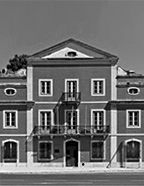

................................
Historiography
I
The Portuguese Academy of History (APH) and its members were primarily concerned with knowledge and its related virtues. This, indeed, begs the question: what kind of knowledge was sought? In fact, the commitment to knowledge may be divided into two fundamental commitments: science and documents. These commitments were so hegemonic that they were omnipresent in all the APH's discussions while, at the same time, almost entirely unquestioned as elements of the historian's daily life. In practical terms, a scientific matrix permeated almost all the historical discussions. This was primarily evident in the highly frequent use of metonymic reasoning and the focus on causal problems. The discussions between Alfredo Pimenta and Rui de Azevedo are an example of this, where the former criticised the latter, saying: "First, he objected that I was not familiar with all the documents from all the medieval Chanceries, and that some might reveal the use of the patronymic in the name of the King. 'Might?' Science is not made with the unknown; it is made with knowledge. It is not with what might be that science is made, but with what is. With what might be one makes romance and banter. [...] All that we conclude is provisional. Nor does science claim definitiveness, precisely as it knows that tomorrow is the correction of yesterday." (Alfredo Pimenta, [untitled] 1939, 1-2, italics of the author of this entry). But science pervaded more than discourse alone. Its importance was seen in the weight given to the auxiliary sciences of history such as numismatics, chronology, palaeography, and in the organisation of bibliographies. The main pursuit in all these activities was the systematisation and categorisation of knowledge, especially of the blocks with which narratives would later be constructed.
Nevertheless, beyond the oft-repeated expression that historians were men of science, theoretical debate in the Portuguese Academy of History (APH) was not extensive. During the Estado Novo, the Academy published only one text that explicitly addressed the theoretical implications of the philosophy of science in history. The text was titled “Probabilidade Histórica” ["Historical Probability"] and was written in 1944 by Gastão de Melo e Matos, who would become part of the Academic Council some years later. His perspective was largely framed by the habitual context of Western debates on the subject. He began by stipulating that every human action was part Science, part Art, while clearly focusing on the former. He added further that scientific truth is "essentially provisional," which was a question that also occupied other authors of the philosophy of history and science in the 1940s.
